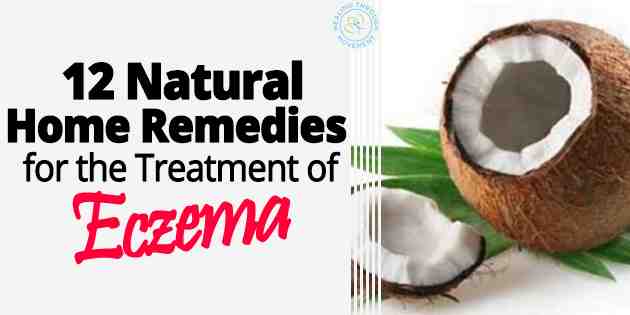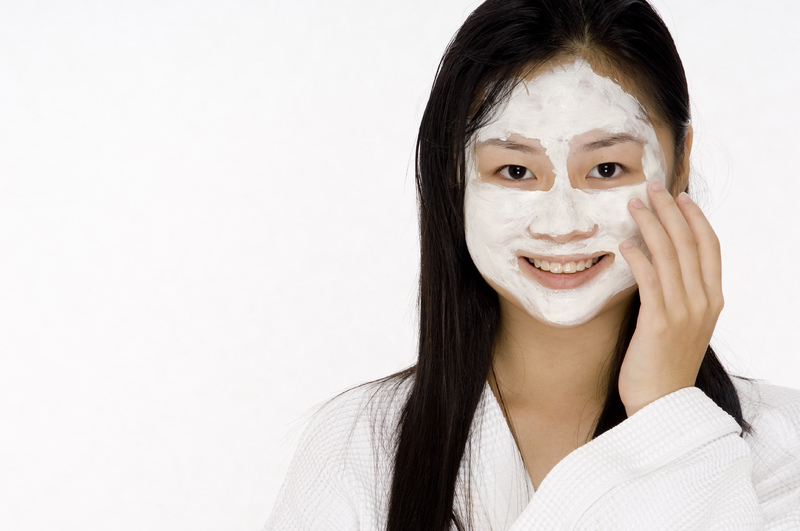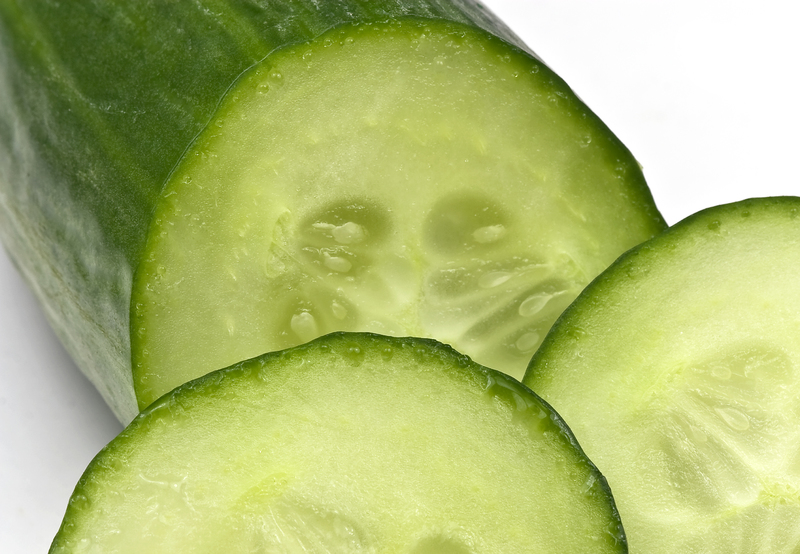Eczema, also known as atopic dermatitis, is a chronic allergic condition that is characterized by itchy, scaly skin rashes and flare-ups. In mild cases, the affected areas would appear inflamed, red, and dry. But in severe conditions, several blisters or sores that ooze and crust over can develop. When the latter occurs, bandaging is required to cover up and protect the sores from further infection.
As with most allergic conditions, the symptoms of atopic dermatitis can wax and wane. The flare-ups are often triggered by exposure to irritants such as detergents, soaps, dust, certain food groups, and other allergens. Stress factors and temperature changes may also aggravate the symptoms.
The conventional treatment for eczema includes the administration of pharmacological preparations such as steroids, antibiotics, and antihistamines. Medical practitioners also prescribe the application of creams, ointments or gels that contain topical steroids such as hydrocortisone. Anti-itch agents such as calamine lotion are also used to ease itching and burning.
However, one of the best remedies for managing and preventing the occurrence of dermatitis symptoms is to observe dietary and lifestyle changes as well as to avoid exposure to factors that can trigger the disease. Not only do these natural approaches alleviate the immediate symptoms but they also prevent future flare-ups. Alternative or home remedies have also been found to be effectual in treating eczema patients.
Here are some of the best home remedies to relieve eczema symptoms and preclude disturbing flare-ups:
1. Soak in oatmeal baths
Oatmeal is not only a healthy option for those who want to lose weight. It is also valuable in promoting good skin. Through the years, it has become an important ingredient in skin products such as face masks, scrubs, and lotions because it makes a great exfoliant. It also contains antibacterial and anti-inflammatory properties that relieve some of the symptoms of eczema such as itchiness, redness, and burning.
To prepare an oatmeal soak, pour one cup of oats in a cheesecloth and tie it securely. Put it in the tub filled with water. Soak in the tub for about 10 to 15 minutes. Afterwards, gently dry the skin and apply a moisturizer.
2. Apply coconut oil
Coconut oil contains anti-bacterial properties that can be beneficial for those who are struggling with eczema flare ups. It also has fats that sink into the skin to moisturize the areas that are dry or irritated.
Make sure to choose the organic virgin coconut oil variety and avoid processed coconut-infused creams or lotions. To use coconut oil, just apply a thin layer on the affected areas and let it dry naturally. The application can be repeated many times throughout the day.
3. Alternate with jojoba oil
If the patient is unable to tolerate coconut oil or is allergic to it, an alternative remedy is to use jojoba oil. Jojoba oil is actually a liquid wax with a structure that resembles the sebum that naturally occurs in our skin. Its properties produce rich moisturizing effects that make it a good therapeutic remedy to soothe dry and scaly skin that is associated with eczema and similar skin disorders.
Just apply a small portion of jojoba oil on the affected areas and let it penetrate the skin. This can be done 2 to 3 times a day or as needed.
4. Hydrate with aloe vera
Aloe vera contains potent anti-inflammatory and healing properties which provide relief for the dry and inflamed skin. Aloe vera gel is a popular remedy for skin rashes or infections.
It is also a natural hydrating and moisturizing agent. In fact, aloe vera extracts are used as a component in several cosmetic products. As such, natural aloe vera is useful for treating skin dryness and flakiness caused by eczema.
To benefit from the healing compounds of this herb, apply a generous portion of the gel on the irritated skin and allow the moisture to sink in. Reapply the gel as needed.
It is best to use extracts from the freshly cut leaves of a natural aloe vera plant which can be conveniently grown in the backyard or in a flower pot. If growing the plant is not feasible, choose an organic product. Various brands are sold in health or drug stores.
5. Soothe with apple cider vinegar
Apple cider vinegar (ACV) is known to have antibacterial and antifungal properties that make it a convenient and inexpensive remedy for eczema and skin irritations. It is rich in acetic acids, malic acids, mineral salts, and vitamin B1. These compounds help to soothe skin inflammation, relieve dryness, and disinfect the infected areas.
In addition, ACV also contains antioxidants, beta-carotenes, and numerous vitamins that support cell renewal and improve overall skin health.
To treat eczema, pure ACV may be applied on the scaly areas with cotton balls. Another way of using it is by diluting two tablespoons of ACV in water and using a cotton ball to apply the mixture on the skin. The process can be done twice daily to get more benefits.
6. Apply cucumber slices
The water and vitamins contained in cucumber make it a good home remedy to soothe the symptoms of dermatitis. Applying thin slices of organic cucumber on the areas affected by eczema can reduce pain, itching, and burning. To reap more benefits, let the cucumber slices rest on the skin for about 1 to 2 hours to let the moisture soak in.
7. Cleanse with turmeric
Curcumin, an antioxidant which happens to be the active compound in turmeric, possesses potent anti-inflammatory and anti-bacterial properties. Turmeric has been used as an important ingredient in ayurvedic treatments for years. Various studies have shown that the spice promotes wound-healing and minimizes skin inflammation. It is helpful in the treatment of a number of skin conditions including eczema, psoriasis, and acne.
Patients can dilute turmeric powder in warm water and use the mixture to cleanse the affected skin areas. This can be repeated twice a day.
8. Rub tea tree oil
Tea tree oil has strong antiseptic and healing properties that make it an ideal natural remedy to abate eczema symptoms such as inflammation and itching. It also helps to treat viral, bacterial, and fungal infections.
To benefit from tea tree oil, simply rub a few drops on the dry skin or on the areas afflicted with eczema. This can be repeated several times a day to relieve the discomfort caused by the condition.
Tea tree oil may also be mixed with a few drops of other essential oils including coconut, lavender, or olive oil to make a homemade tea tree lotion.
9. Increase omega-3 intake
A number of studies have disclosed that omega-3 fatty acids found in fish oil are beneficial in the treatment of skin conditions such as eczema and psoriasis. The essential fatty acids help to diminish inflammation and skin redness caused by allergic reactions. They also promote and maintain normal skin function. Consuming at least 3 to 10 grams of natural fish oil a day can improve the skin health of eczema sufferers.
Some rich sources of omega-3 essential acids include certain fish such tuna, salmon, sardines, and mackerel. Eggs, avocados, organic raw nuts, chia seeds, and flax seeds are also good alternative sources.
Of course, there are a number of fish oil supplements available in health and drug stores. A few capsules may be taken a day, as advised by a physician.
10. Probiotics
Incorporating probiotics in the daily diet can aid in decreasing eczema symptoms. In the recent years, some investigations have found that gut bacteria influences a person’s overall wellness. It is important to maintain a healthy gut to prevent health conditions caused by chronic inflammation.
Some of the most recommended sources of probiotics include yogurt, kefir, sauerkraut, miso soup, sourdough bread, and sour pickles. Probiotics supplements in tablets, capsule, and powder forms are also available in most supermarkets and health shops.
11. Take vitamins and supplements
Taking vitamins and supplements may also aid in managing eczema symptoms. Some of the vitamins that can support treatment of the condition include Vitamin D and Vitamin B12. There are studies that reveal that these vitamins can be helpful in eczema.
Another vitamin that can help facilitate wound-healing and skin renewal is Vitamin E which contains D-alpha tocopherols. Vitamin E promotes skin regeneration and helps the body to better utilize fatty acids. A dose of one 400 IU vitamin capsule a day is recommended.
Finding an effectual treatment option for eczema can be expensive, challenging, and frustrating. The disease can be chronic and may be characterized by periods of flare-ups that come and go. Fortunately, there are practical remedies in the form of natural and organic herbs, oils, or food sources. These are healthier alternatives that can ensure that the patient’s condition is not aggravated by the harsh compounds and chemicals contained in pharmaceutical preparations.
In curing eczema, it is also important to avoid irritants, observe good nutrition, exercise moderately, and manage stress levels. While an ultimate remedy may not be available, the disease can be controlled by using the right combination of treatment approaches.
If you want to discover the nature’s secret remedies for healing and fat burning, then click here to check out the Best Foods ThatRapidly Slim & Heal In 7 Days program.




